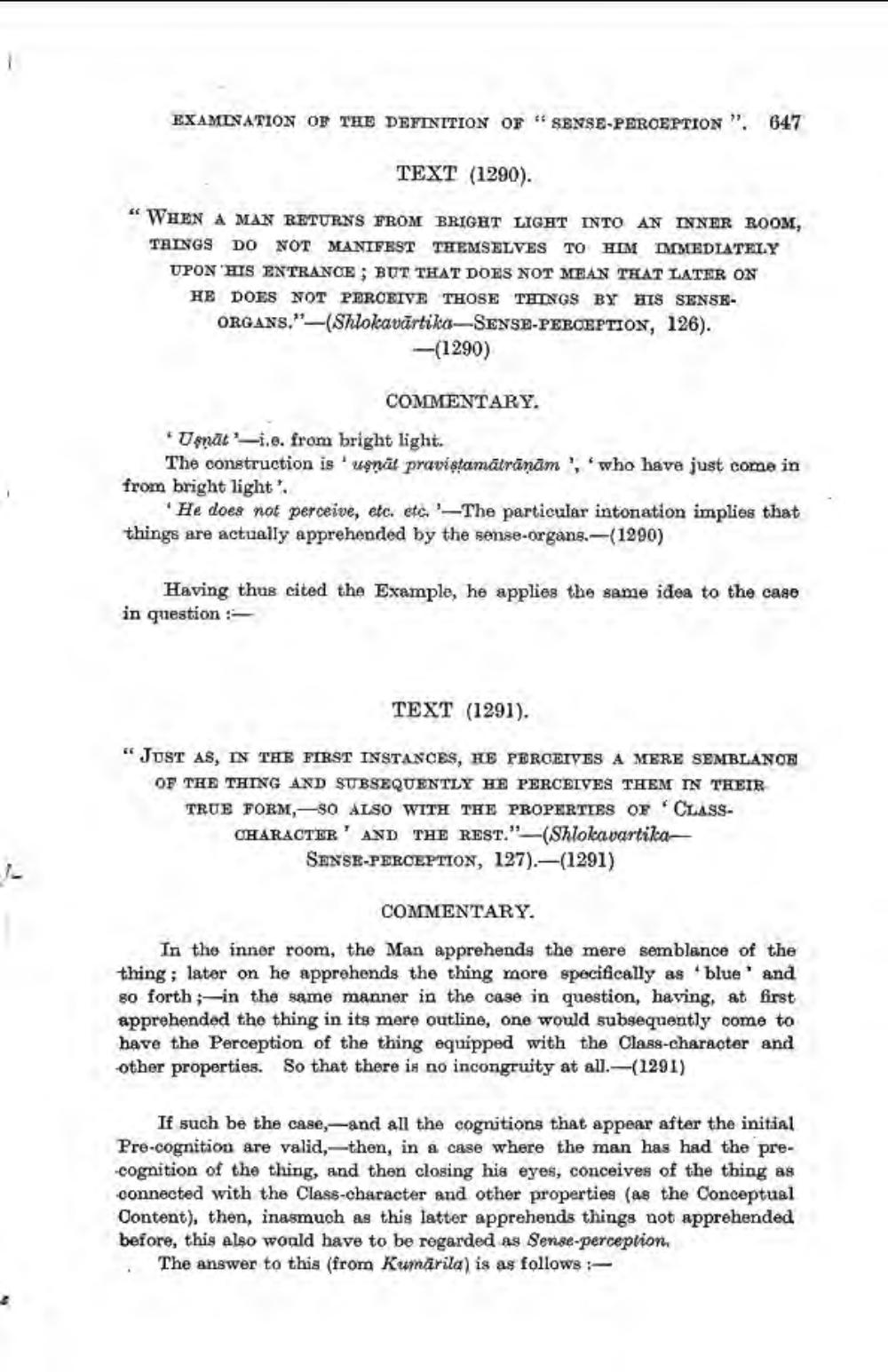________________
EXAMINATION OF THE DEFINITION OF "SENSE-PEROEPTION". 647
TEXT (1290).
"WHEN A MAN RETURNS FROM BRIGHT LIGHT INTO AN INNER ROOM, TRINGS DO NOT MANIFEST THEMSELVES TO HIM IMMEDIATELY UPON HIS ENTRANCE ; BUT THAT DOES NOT MEAN THAT LATER ON HE DOES NOT PORCEIVE THOSE THINGS BY HIS SENSEORGANS." -(Shlokavārtika-SENSE-PERCEPTION, 126).
-(1290)
COMMENTARY. * Uenat 1.e. from bright light.
The construction is 'unit pravistamātrānām', who have just come in from bright light
He does not perceive, etc. etc. The particular intonation implies that things are actually apprehended by the sense-organs.-(1290)
Having thus cited the Example, he applies the same idea to the case in questions
TEXT (1291).
"JUST AS, IN THE FIRST INSTANCES, KE PERCEIVES A MERE SEMBLANCH OF THE THING AND SUBSEQUENTLY HE PERCEIVES THEM IN THEIR TRUE FORM,—30 ALSO WITH THE PROPERTIES OF CLASSCHARACTER' AND THE REST." -(Shloleavartila
SENSE-PERCEPTION, 127).-(1291)
COMMENTARY.
In the inner room, the Man apprehends the mere semblance of the thing; later on he apprehends the thing more specifically as 'blue' and so forth in the same manner in the case in question, having. At first apprehended the thing in its mere outline, one would subsequently come to have the Perception of the thing equipped with the Class-character and other properties. So that there is no incongruity at all.-(1291)
If such be the case, and all the cognitions that appear after the initial Pre-cognition are valid, -then, in a case where the man has had the pre-cognition of the thing, and then closing his eyes, conceives of the thing as connected with the Class-character and other properties (as the Conceptual Content), then, inasmuch as this latter apprehends things not apprehended before, this also would have to be regarded as Sense-perception
The answer to this (from Kumarila) is as follows:




